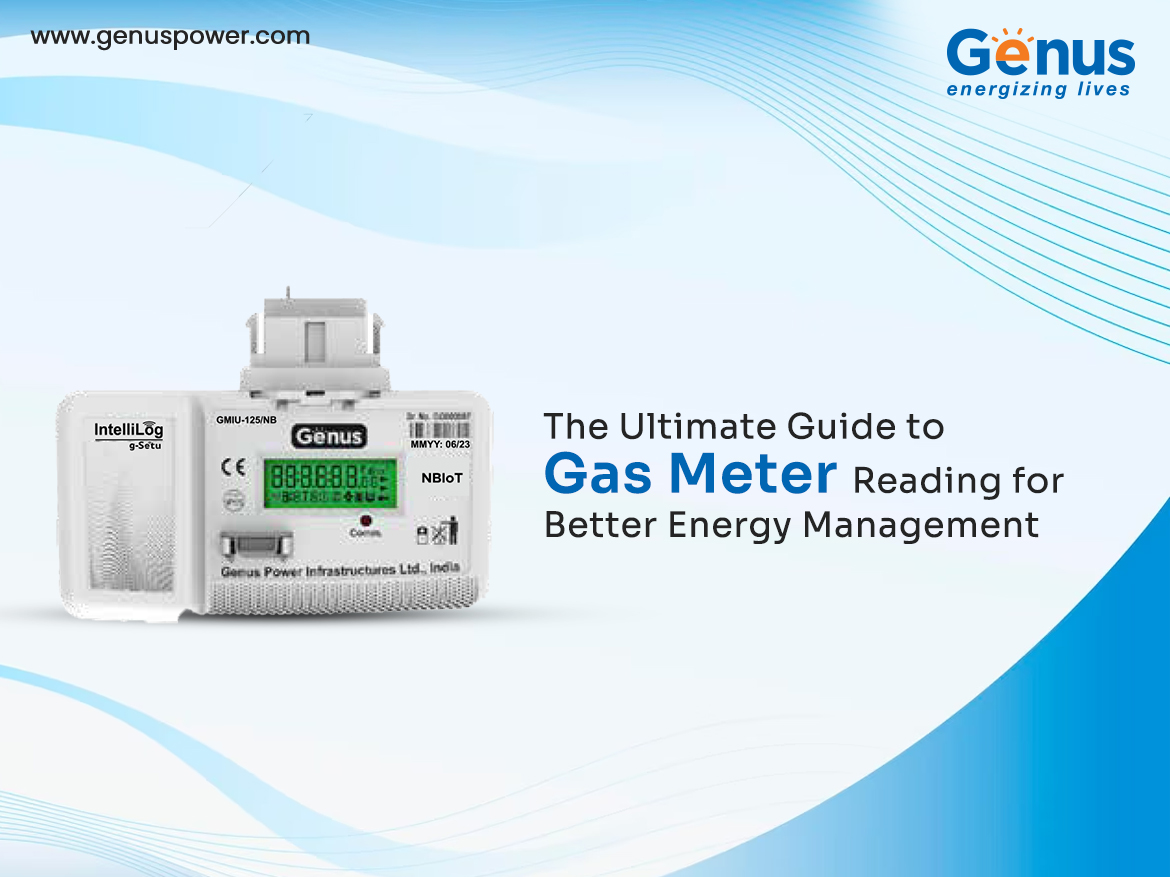
In the quest for sustainability, taking correct power, water, or gas meter readings for efficient energy management emerges as a pivotal aspect of our daily lives. Energy management can be one critical bridge when it comes to balancing and meeting our current needs and preserving resources for future generations, touching every facet of our existence, from industrial complexes to our cozy homes.
When it comes to energy management, innovative solutions like advanced metering devices, including power, water, and gas meters, are crucial tools in managing and understanding our consumption. Smart metering devices empower users to make informed decisions about their energy use, allowing us to build a culture of efficient energy management and ensuring financial and environmental benefits to the planet.
In particular, gas, as a primary energy source, requires careful measurement and control. In this light, gas meter devices from Genus are at the forefront of this technological revolution, offering precision, reliability, and smart features for understanding and optimizing our energy usage.
Gas meters are specialized metering devices that measure and record the exact volumes of fuel gases like natural gas, LPG, or more supplied by a gas facility. These devices are commonly used in residential and commercial settings, playing a crucial role in energy management and billing, ensuring accuracy and fairness for both consumers and suppliers.
Genus Power gas meters are equipped with a high level of functionality, low power consumption, reliability, durability, and high flexibility with customized solutions. These meters integrate well with modern smart home systems. This makes them a preferred choice for users to monitor and optimize their energy usage.
Genus gas meters are designed to provide accurate gas meter readings and withstand various environmental conditions. Designed for durability with advanced technology, a gas meter can also integrate well with modern smart home systems.
Taking accurate meter readings is essential for effective energy management and ensuring that your utility bills reflect your actual usage. Here’s a guide to take your gas meter reading correctly:
Before reading the meter, make sure the area is safe. Check for any signs of gas leaks or damage to the meter.
Simply note the numbers in the same order they appear on the meter display. Gas meters typically measure in cubic feet (ft³) or cubic meters (m³).
If required by your utility provider, submit your reading online, via an app, or by phone.
If your readings seem unusually high or low, consider rechecking or consulting your gas provider.
Genus Smart Gas Meter, particularly the SKG1.6 model, offers a suite of functionalities designed for modern needs. These meters are engineered for low power consumption and high reliability, ensuring they deliver performance without frequent maintenance or battery changes.
The SKG16 meters come equipped with a Meter Interface Unit called IntelliLog (g-Setu), which utilizes hybrid communication technology combining NBIoT/LoRaWAN and RF walk-by method, allowing for seamless and long-range communication between the meter and gateways, ensuring data is transmitted efficiently and securely to the Head-end System (HES).
In terms of security, the SKG1.6 meters feature alarms that trigger in cases of magnet tampering, device removal, or when the battery is low, safeguarding the integrity of the meter’s operation.
For maintenance, gas meters from Genus Power have an optical interface, which facilitates local servicing and checking, backed by an IP65 ingress protection rating that shields the device from dust and low-pressure water jets.
The consumer-friendly digital LCD display shows essential gas consumption information for easy interpretation. The device also stores historical consumption data, which can be invaluable for detecting anomalies and trends in gas usage.
Moreover, digital gas meters are equipped with ATEX, PESO, WPC, ICEx, and IEC 60079 Certification, ensuring compliance with international safety and operational standards. The HES additionally offers detailed data analytics, with yearly to monthly reports that include variance analysis and exception reporting, empowering consumers to manage their energy usage proactively.
Analyzing consumption patterns with actual gas meter readings data over a period of time is key to effective energy management. Regular monitoring can help identify patterns in gas usage, enabling you to make informed decisions to optimize energy consumption. Reducing gas consumption not only saves money but also benefits the environment. Here are some tips:
1.Insulate Your Home properly to reduce the need for heating.
2.Conduct regular maintenance to ensure your heating system is working properly.
3.Be mindful of how and when you use gas to avoid unnecessary consumption.
4.Upgrade to Energy-Efficient Appliances as they consume less gas for the same output.
5.Use Programmable Thermostats to set temperatures according to need, reducing wastage.